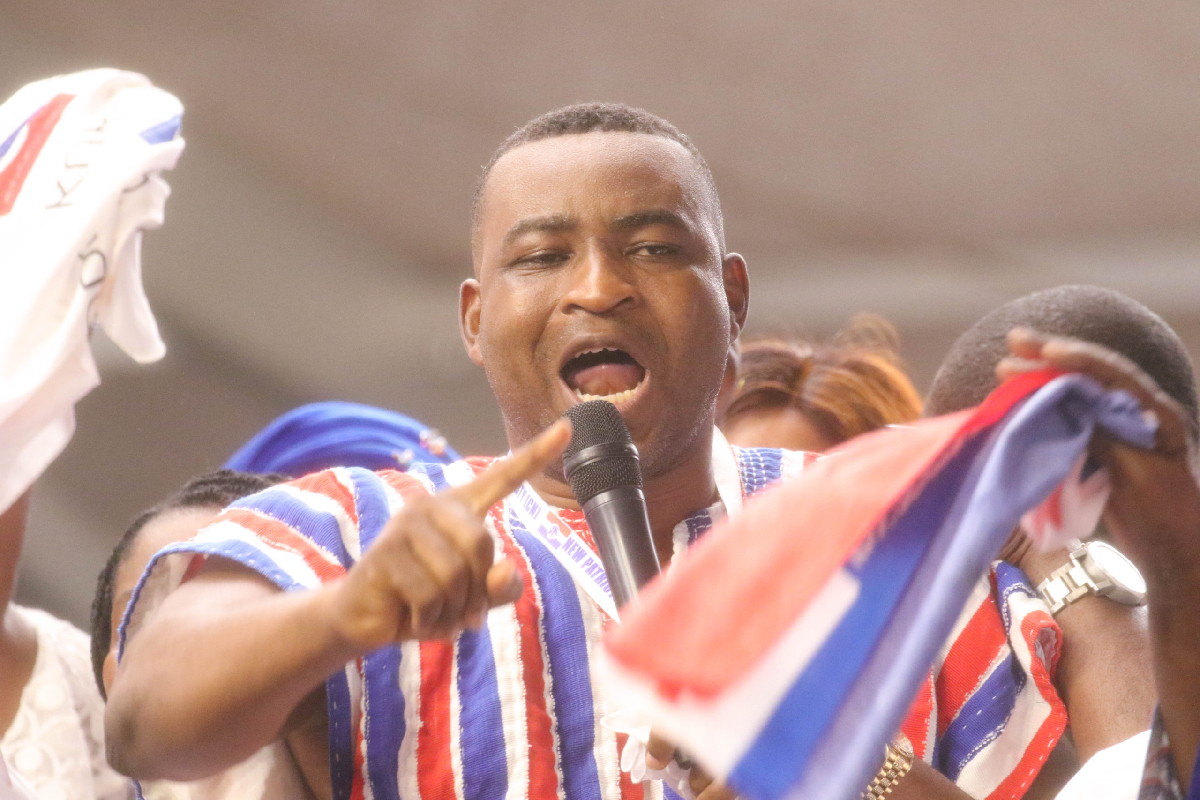How NPP has never had an Ashanti National Chairman from da Rocha to Ntim
Chairman Wontumi has affirmed his decision to seek the NPP National Chairman position
The New Patriotic Party (NPP), one of Ghana’s dominant political forces, has long drawn its strength from the Ashanti Region, a stronghold consistently delivering substantial votes in national elections. Yet, despite this unwavering support, the party has never had a National Chairman from the Ashanti Region since its formation in 1992.
This historical anomaly has been thrust into the spotlight by Bernard Antwi Boasiako, popularly known as Chairman Wontumi, the current Ashanti Regional Chairman, who announced his intention to contest the NPP National Chairmanship on May 5, 2025.
Wontumi’s campaign is anchored on addressing this gap, arguing that the Ashanti Region’s loyalty and political weight deserve representation at the party’s highest leadership level.
A Legacy without Ashanti leadership
Since its inception, the NPP has been led by eight National Chairmen, none of whom hail from the Ashanti Region.
The party’s first chairman, Bernard Joao da Rocha (1992–1996), was a lawyer based in Accra, with ties to the Greater Accra Region. Samuel Odoi-Sykes (1996–2001), another Accra-based diplomat, followed. Haruna Esseku (2001–2005) represented the Central Region, likely from Winneba.
Peter Mac Manu (2005–2010) and Freddie Blay (2015–2022) both came from the Western Region, with roots in Takoradi and Nzema East, respectively. Jake Otanka Obetsebi-Lamptey (2010–2014) was a Ga native from Greater Accra, while Paul Afoko (2014–2015) hailed from Sandema in the Upper East Region. The current chairman, Stephen Ayesu Ntim (2022–present), is from the Bono Region.
This pattern reveals a curious absence of Ashanti representation, despite the region’s status as the NPP’s political heartland. The Ashanti Region has been pivotal in delivering electoral victories, contributing significantly to the party’s successes in 2000, 2004, 2016, and 2020.
Ahead of the 2024 elections, several analogies had been drawn for a possible victory for the NPP, with some analysts predicting a win for the then-governing party if the Ashanti and Eastern Regions were to swing significantly in its favour.
Despite the NPP’s national defeat and the marginal improvement by the National Democratic Congress (NDC), the Ashanti Region remained a stronghold.
Wontumi’s case for Ashanti chairmanship
Chairman Wontumi, speaking on his Wontumi Radio on May 15, 2025, emphasised this historical oversight, arguing that the next NPP National Chairman must come from the Ashanti Region.
“The Ashanti Region has been the backbone of the NPP, yet we’ve never had a national chairman. It’s time for this to change,” he stated, framing his candidacy as a corrective measure.
Wontumi, who has served as Ashanti Regional Chairman since 2014, cites his deep connection to the party’s grassroots and his financial contributions, including a claimed GH¢1 billion donation for the 2015 Tamale Congress, as evidence of his commitment.
The Ashanti Region’s cultural and political significance, tied to the historical Asante Kingdom and its influence within the Akan-dominated NPP, for some critics, strengthens Wontumi’s case.
Among other things, Wontumi sees himself as a unifying figure capable of leveraging the region’s resources and loyalty to reclaim power in 2028, following the NPP’s 2024 loss to the National Democratic Congress (NDC).
Challenges to Wontumi’s ambition:
Despite his bold claims, Wontumi’s path to the national chairmanship is fraught with challenges. His tenure as Ashanti Regional Chairman has been polarising. Some critics have blamed Wontumi for the NPP’s underperformance in the Ashanti Region during the 2024 elections, citing his public display of wealth, involvement in mining controversies, and internal party disputes.
Wontumi’s company, Akonta Mining Limited, has also drawn scrutiny. The revocation of its mining licence in April 2025, coupled with allegations of illegal mining in the Tano Nimiri Forest Reserve, has led to accusations of political targeting by the NDC.
However, Wontumi is convinced that these actions are designed to derail his chairmanship bid, stating, “The NDC know I’m close to the grassroots. Becoming the NPP National Chairman is a threat to their 2028 ambitions.”
Despite his defence, these controversies could alienate party delegates wary of further scandals.
Moreover, Wontumi faces potential competition within the NPP.
While no other candidates have officially declared as of May 16, 2025, the party’s internal dynamics suggest a contest. His call for unity, as seen in his mediation efforts between Kennedy Agyapong and Bono Regional Chairman Kwame Baffoe (Abronye DC), may bolster his image as a peacemaker, but lingering tensions from the 2023 presidential primaries and his strong support for Dr Mahamudu Bawumia could complicate his appeal to all factions.
Wontumi’s chances of making history:
Wontumi’s chances hinge on his ability to mobilise the Ashanti Region’s delegates and convince the broader party of his leadership credentials. His grassroots popularity, media presence through Wontumi Radio/TV, and financial resources are significant advantages.
His claim of divine guidance and confidence in victory, expressed on May 15, 2025, resonates with supporters who see him as a bold, unapologetic leader. The NPP’s delegate system values loyalty, experience, and electability.
However, some analysts believe the absence of an Ashanti chairman historically may reflect a deliberate strategy to balance regional representation, which could work against Wontumi if delegates favour maintaining this trend.
With the NPP expected to host its national officers’ election sometime in 2026, a deeper question lingers: why has the Ashanti Region, despite its electoral dominance, never produced an NPP National Chairman?
Some analysts suggest it stems from the party’s roots in the United Gold Coast Convention (UGCC) and Progress Party, which drew leadership from coastal and northern Akan elites, particularly in Greater Accra and the Western Region.
Others argue that the Ashanti Region’s influence is so entrenched that it exerts power through other roles, such as MPs, ministers, or regional executives, reducing the need for a national chairman.
As the NPP prepares for its next national congress, Wontumi’s campaign is set to test whether the party is ready to break this historical pattern. His success depends on overcoming his controversies, unifying a fractured party, and convincing delegates that an Ashanti chairman is not just symbolic but essential for the NPP’s resurgence.
For now, the curious case of the NPP’s Ashanti chairmanship gap remains a compelling narrative in Ghana’s political landscape.
GA/BAI










